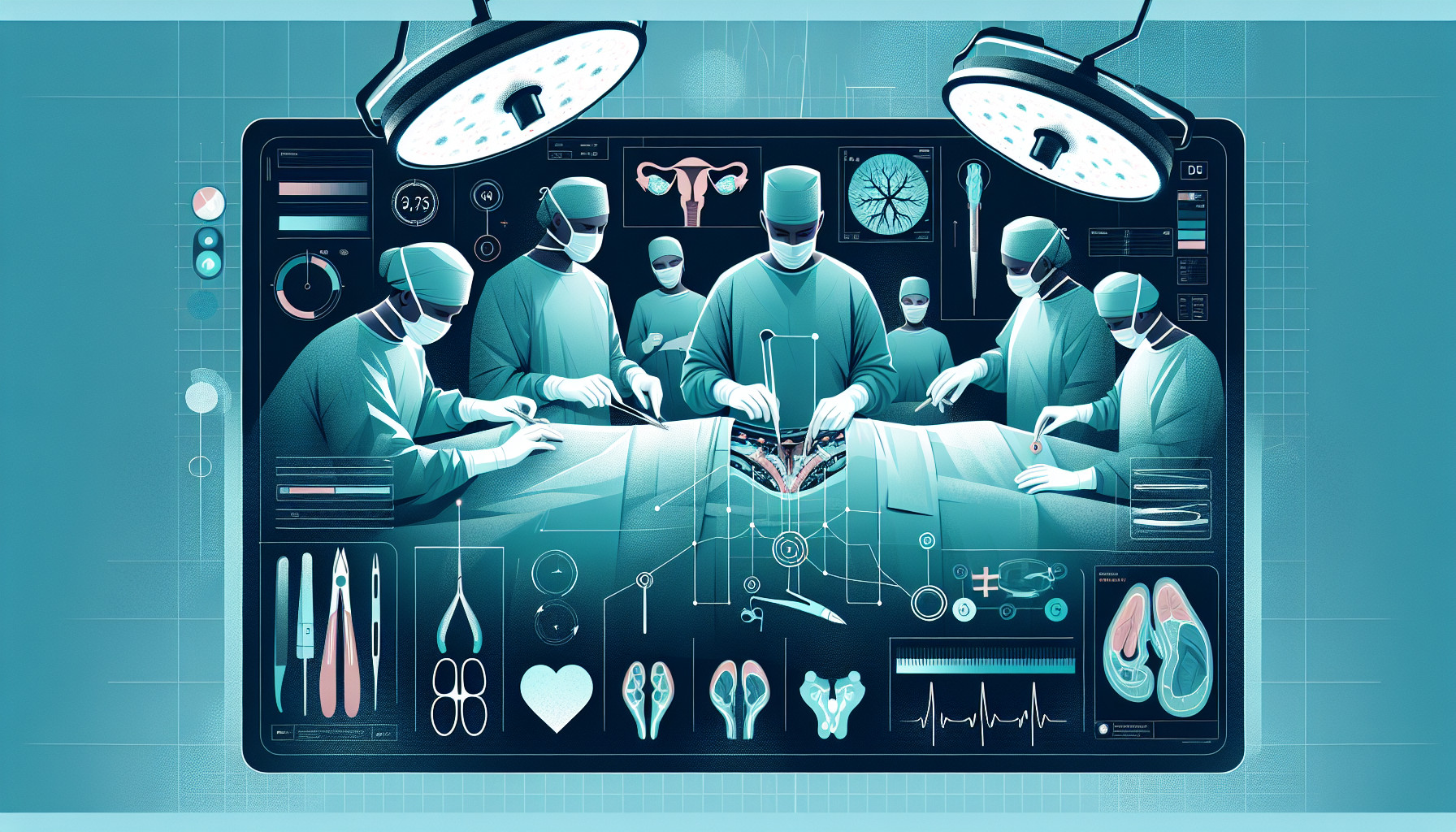Our Summary
This study reviewed the progress of laparoscopy (a type of minimally invasive surgery done through small incisions) research in Senegal. The authors looked at 41 studies published from 1984 to 2021. They found that the average age of patients was 33 and there were more females than males who underwent the procedure. The most common reasons for laparoscopy were benign gastrointestinal disorders, abdominal emergencies, and gallbladder surgeries. The death rate was less than 1% and the rate of complications was around 5%. Most research on laparoscopy in Senegal comes from the capital, Dakar, and the results are generally positive. The authors recommend that this surgical technique should be made more widely available across the country and used for a broader range of conditions.
FAQs
- What were the most common reasons for performing laparoscopy in the studies reviewed from Senegal?
- What are the death and complication rates associated with laparoscopic surgery according to the studies?
- What is the recommendation of the authors regarding the use of laparoscopic surgery in Senegal?
Doctor’s Tip
A doctor might tell a patient undergoing testicular surgery to follow post-operative care instructions carefully, including taking prescribed pain medications, keeping the surgical area clean and dry, and avoiding strenuous activities until fully healed. They may also recommend regular follow-up appointments to monitor healing and address any concerns.
Suitable For
Patients who are typically recommended testicular surgery include:
Men with testicular cancer: Testicular surgery may be recommended to remove the affected testicle in cases of testicular cancer.
Men with testicular torsion: Testicular surgery may be necessary to untwist the spermatic cord and restore blood flow to the affected testicle in cases of testicular torsion.
Men with testicular trauma: Testicular surgery may be needed to repair a ruptured or injured testicle due to trauma.
Men with testicular masses or lumps: Testicular surgery may be recommended to remove benign or malignant masses or lumps found in the testicles.
Men with testicular infections: Testicular surgery may be required to drain abscesses or remove infected tissue in cases of severe testicular infections.
Men with infertility issues: Testicular surgery may be recommended to treat conditions such as varicoceles or blockages in the reproductive system that are causing infertility.
Overall, testicular surgery is typically recommended for men with conditions affecting the testicles that cannot be effectively treated with other non-surgical interventions.
Timeline
Before testicular surgery:
- Patient visits a doctor due to symptoms such as testicular pain, swelling, or a lump.
- Doctor conducts a physical examination and may order tests such as ultrasound or blood tests to diagnose the issue.
- Patient discusses treatment options with the doctor, including the possibility of testicular surgery.
- Patient undergoes pre-operative preparations such as fasting and stopping certain medications.
After testicular surgery:
- Patient is taken to the operating room and undergoes the surgical procedure.
- Patient is monitored in the recovery room before being transferred to a hospital room or discharged home.
- Patient may experience pain, swelling, and discomfort in the days following surgery.
- Patient follows post-operative instructions such as taking pain medications, resting, and avoiding strenuous activities.
- Patient attends follow-up appointments with the doctor to monitor healing and address any concerns.
- Patient gradually resumes normal activities as advised by the doctor.
What to Ask Your Doctor
What are the potential risks and complications associated with testicular surgery?
What is the success rate of the surgery?
How long is the recovery period and what can I expect during the recovery process?
Will I experience any changes in sexual function or fertility after the surgery?
What type of anesthesia will be used during the surgery?
How many testicular surgeries have you performed and what is your experience with this procedure?
Are there any alternative treatments or procedures that I should consider?
Will I need any follow-up appointments or tests after the surgery?
What should I do if I experience any unusual symptoms or complications after the surgery?
What is the expected outcome of the surgery in terms of pain relief or improvement in my condition?
Reference
Authors: Ndong A, Diallo AC, Rouhi AD, Diao ML, Yi W, Tendeng JN, Williams NN, Cissé M, Dumon KR, Konaté I. Journal: Surg Endosc. 2023 Aug;37(8):6548-6557. doi: 10.1007/s00464-023-10192-w. Epub 2023 Jun 12. PMID: 37308759
